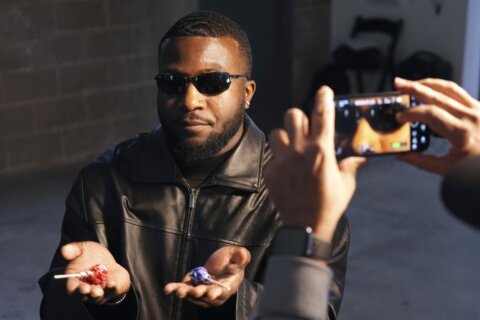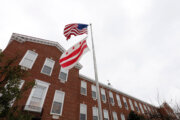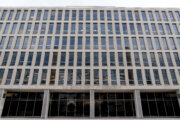Tech tycoon Mike Lynch, who died after his yacht sank off Sicily, had been trying to move past a Silicon Valley debacle that had tarnished his legacy as an icon of British ingenuity.
Lynch, 59, struck gold when he sold Autonomy, a software maker he founded in 1996, to Hewlett-Packard for $11 billion in 2011. But the deal quickly turned into an albatross for him after he was accused of cooking the books to make the sale and fired by HP’s then-CEO Meg Whitman.
His death, confirmed on Thursday by Italian officials after they recovered his body and five others from the sea, was a dramatic turn of events that came after he was cleared of criminal charges in the U.S. in June.
Before becoming entangled with HP, Lynch was widely hailed as a visionary who inspired descriptions casting him as the British version of Microsoft co-founder Bill Gates and Apple co-founder Steve Jobs.
Lynch was science and technology adviser to two British prime ministers. He also founded Invoke Capital, a venture capital firm that was a founding investor of British cybersecurity company Darktrace, and Luminance, an artificial intelligence platform for the legal industry.
Lynch was “an instrumental figurehead from the Cambridge (England) technology scene,” said friend Brent Hoberman, former CEO of travel website lastminute.com. Hoberman told the BBC that Lynch was “leading the path forward for U.K. entrepreneurs to commercialize their inventions at a global scale.”
A decade-long legal battle had resulted in Lynch’s extradition from the U.K. to face criminal charges of engineering a massive fraud against HP, a company that helped shape Silicon Valley’s zeitgeist after starting in a Palo Alto, California, garage in 1939.
Lynch steadfastly denied any wrongdoing, asserting that he was being made a scapegoat for HP’s own bungling — a position he maintained while testifying before a jury during a 2 1/2 month trial in San Francisco earlier this year. U.S. Justice Department prosecutors called more than 30 witnesses in an attempt to prove allegations that Lynch engaged in accounting duplicity that bilked billions of dollars from HP.
The trial ended up vindicating Lynch and he pledged to return to the U.K. and explore new ways to innovate.
Although he avoided a possible prison sentence, Lynch still faced a civil case in London that HP mostly won during 2022. Damages haven’t been determined in that case, but HP is seeking $4 billion. Lynch made more than $800 million from the Autonomy sale.
Forbes pegged his wealth $1 billion in 2015, the only year he was on the magazine’s rich list. Britain’s Sunday Times newspaper estimated this year that Lynch and his wife Angela Bacares were worth 500 million pounds ($655 million).
Lynch, a Cambridge-educated mathematician, made his mark running Autonomy, which made a search engine that could pore through emails and other internal business documents to help companies find vital information more quickly. Autonomy’s steady growth during its first decade resulted in Lynch being awarded one of the U.K’s highest honors, the Office of the Most Excellent Order of the British Empire in 2006.
John Browne, chair of Francis Crick Institute, a biomedical research institute, and former head of energy giant BP, said Lynch’s “ideas and his personal vision were a powerful contribution to science and technology in both Britain and globally.”
The Royal Academy of Engineering, where Lynch was a Fellow, said it was “deeply saddened” to learn of his death and that he played an “active role” as a mentor and donor.
In the months leading up to the deal that would go awry, HP valued Autonomy at $46 billion, according to evidence presented at Lynch’s trial.
The trial also presented contrasting portraits of Lynch. Prosecutors painted him as an iron-fisted boss obsessed with hitting revenue targets, even if it meant resorting to duplicity. But his lawyers cast him as entrepreneur with integrity and a prototypical tech nerd who enjoyed eating cold pizza late at night while pondering new ways to innovate.
Copyright © 2025 The Associated Press. All rights reserved. This material may not be published, broadcast, written or redistributed.







